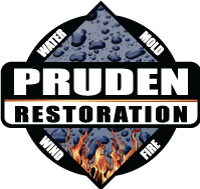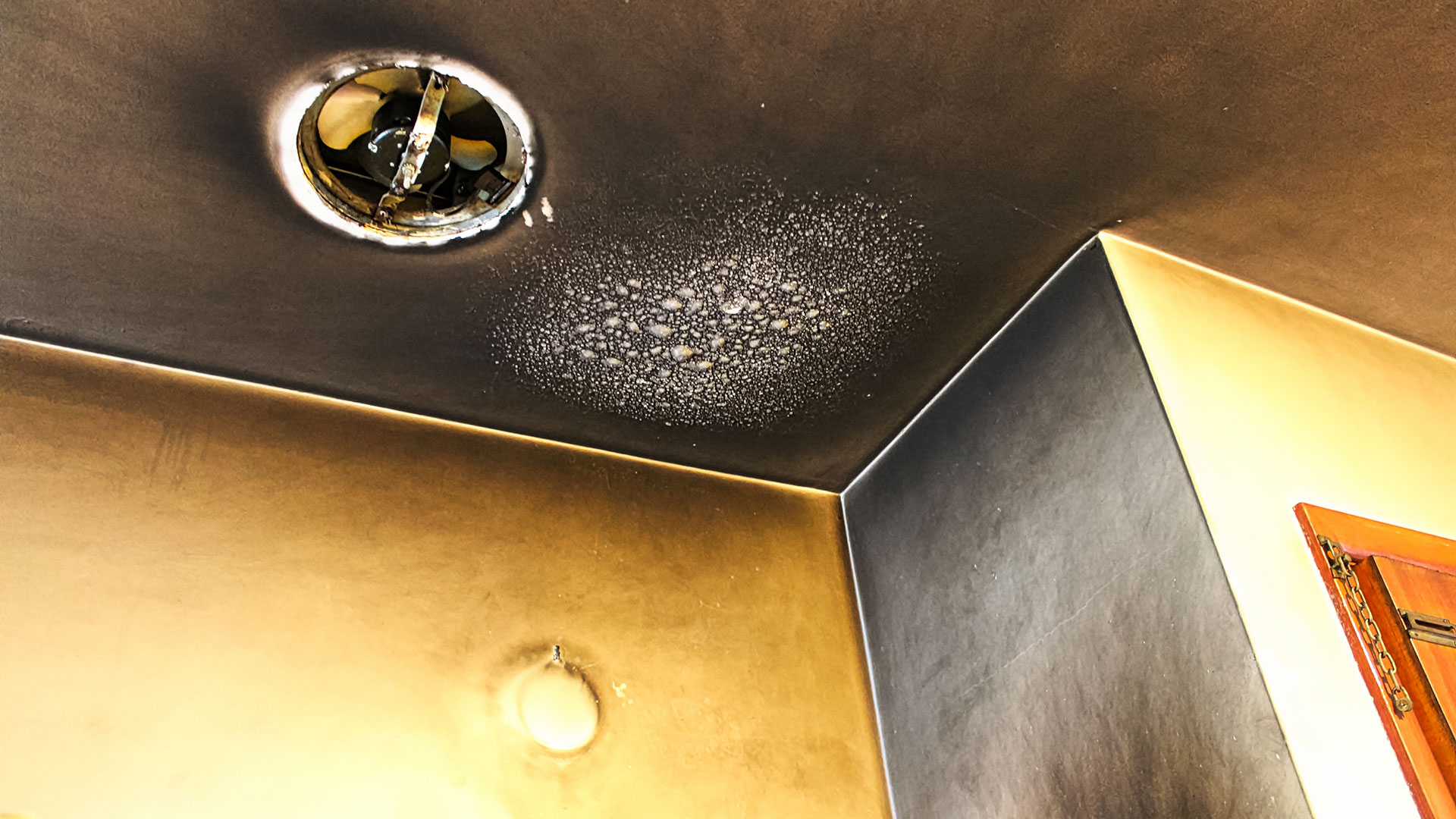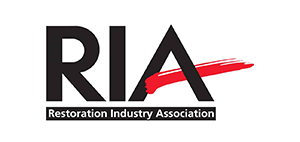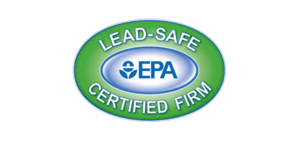As a homeowner, keeping your family and property safe is a top priority. Fire incidents can cause severe damage, may lead to injuries, and even loss of life. Taking preventative measures is critical to minimize the risk of fire damage and protect your loved ones. In this section, we will provide you with essential fire damage prevention tips to ensure the safety of your home. By following these tips, you can reduce the risk of fire incidents and protect your property and loved ones.
Key Takeaways:
- Installing smoke alarms and carbon monoxide detectors is the first step in fire damage prevention.
- Conducting regular smoke alarm maintenance, including testing monthly and replacing batteries annually, is crucial to ensure proper function.
- A well-designed fire escape plan is essential for every household, and regular fire drills should be conducted with your family.
- Having fire extinguishers handy can help mitigate small fires, and it’s important to understand proper usage and maintenance.
- Preventing electrical fires and safely using heating appliances are critical to reducing fire risks in your home.
Install Smoke Alarms and Carbon Monoxide Detectors
The first and most crucial step in preventing fire damage is installing smoke alarms and carbon monoxide detectors in your home. These devices can help detect smoke or a carbon monoxide leak, alerting you and your family to evacuate the premises safely and quickly.
When choosing smoke alarms, ensure they are certified by a reputable testing agency. Also, install smoke alarms in every room of the house, especially in sleeping areas and on every level of your home. For carbon monoxide detectors, place them near sleeping areas and fuel-burning appliances, such as gas stoves, water heaters, and furnaces.
| Tip: | Test your smoke alarms and carbon monoxide detectors once every month to ensure they are functioning properly. Replace batteries annually and devices every ten years. |
|---|
Make sure to educate your family members, including children, on what the alarms sound like and what to do in case of an emergency. Accidents can happen anytime, but by installing smoke alarms and carbon monoxide detectors, you can stay one step ahead of any potential fire danger.
Conduct Regular Smoke Alarm Maintenance
Regular maintenance of your smoke alarms is vital to ensure they function properly. Testing them monthly is crucial to avoid malfunction during a fire emergency. You can quickly test your smoke alarm by pressing the test button on the device. If you hear a loud, piercing noise, your alarm is working correctly.
If you have battery-operated smoke alarms, change the batteries annually, and ensure they are always functional. A malfunctioning smoke alarm is as dangerous as not having one at all. If you have a hardwired smoke alarm, you should replace the entire unit every ten years.
| Smoke Alarm Maintenance Tips | Frequency |
|---|---|
| Test smoke alarms | Monthly |
| Replace batteries in battery-operated smoke alarms | Annually |
| Replace the entire unit in hardwired smoke alarms | Every ten years |
By conducting regular maintenance on your smoke alarms, you can ensure they are functioning correctly and providing the utmost safety in case of a fire emergency. Neglecting smoke alarm maintenance can have disastrous consequences, so always prioritize their upkeep.
Create and Practice a Fire Escape Plan
Having a well-designed fire escape plan is crucial for every household. In case of fire, you must know how to evacuate safely and quickly. Here are some tips to help you create an effective fire escape plan for your home:
- Identify all possible exits: Depending on the layout of your home, you may have multiple exits. Identify all of them and make sure they are accessible and easy to open. If any of them are blocked or difficult to use, consider fixing or replacing them.
- Draw a floor plan: Sketch a floor plan of your home and mark all possible exits. Include all rooms, doors, windows, and stairs. Make copies of the plan and post them in visible locations throughout your home.
- Assign roles: It is essential to designate roles for each family member in case of fire. For example, one person can be in charge of gathering pets, while another can assist young children or elderly family members.
- Establish a meeting point: Choose a safe meeting point outside your home where everyone can gather after evacuating. It can be a neighbor’s house, a street corner, or a park. Make sure everyone knows the location.
- Practice regularly: Once you have created a fire escape plan, practice it regularly with your family. Conduct drills and make sure everyone knows what to do in case of an emergency. Emphasize the importance of staying calm and following the plan.
Creating and practicing a fire escape plan can be life-saving. Make sure everyone in your household knows the plan and is prepared for any fire emergencies that may occur.
Keep Fire Extinguishers Handy
The presence of fire extinguishers in your home can be the difference between a small, contained fire and a catastrophic incident. It’s crucial to keep a fire extinguisher in areas where fires are most likely to occur, such as the kitchen, garage, and near fireplaces.
When purchasing a fire extinguisher, ensure that it is designed for home use and can handle different types of fires, including combustible materials, electrical fires, and flammable liquids. Take the time to familiarize yourself with the instructions and proper usage of the extinguisher to avoid any confusion in the event of a fire.
Remember to conduct regular maintenance on your fire extinguisher to ensure it is in proper working condition. Check the pressure gauge, nozzle, and pin regularly and replace or recharge the extinguisher as necessary. Having a fire extinguisher within reach can give you peace of mind and keep your home safe in case of a fire.
Prevent Electrical Fires
Electrical malfunctions are a leading cause of home fires. To minimize the risk of electrical fires, you should practice proper electrical safety measures:
- Do not overload outlets or extension cords. If you need additional outlets, hire a licensed electrician to install them.
- Use only light bulbs with the recommended wattage for your fixtures.
- Regularly inspect your home’s wiring, switches, and outlets. Look for signs of fraying, cracking, or damage.
- Do not use electrical appliances with damaged cords or plugs. Replace or repair them immediately.
- Unplug appliances when not in use, particularly before going to bed or leaving your home for an extended period.
By following these simple tips, you can significantly reduce the risk of electrical fires in your home.
Safely Use Heating Appliances
Heating appliances such as space heaters, fireplaces, and furnaces can keep you warm during the colder months, but they can also pose a fire hazard if mishandled. Follow these safety tips to ensure your heating appliances are used safely:
- Place space heaters on a level, non-flammable surface, and keep them at least three feet away from any flammable materials. Never leave a space heater unattended.
- Have your fireplace inspected and cleaned annually by a professional to ensure it is functioning properly and free of debris. Only burn dry, seasoned wood and keep the hearth clear of any flammable materials.
- Make sure your furnace is regularly inspected and maintained by a professional. Keep the area around the furnace clear of any flammable materials.
In addition to these safety tips, it’s essential to install and maintain carbon monoxide detectors near any heating appliances that burn fuel. Carbon monoxide is a colorless, odorless gas that can be deadly if inhaled in high concentrations.
Kitchen Fire Prevention
The kitchen is one of the most common areas in your home where fire incidents can occur, and that is why it’s essential to practice safe cooking habits to prevent kitchen fires. Here are some valuable tips on kitchen fire prevention:
| Tip | Description |
|---|---|
| Stay in the kitchen | Never leave cooking food unattended, even for a short time. A fire can start quickly and spread rapidly. |
| Keep flammable objects away from heat sources | Avoid placing flammable items such as towels, curtains, and paper towels near stoves, ovens, or other heat sources. These materials can quickly catch fire and spread the flames. |
| Don’t overload electrical outlets | Overloading electrical outlets can increase the risk of fire. If you need to plug in multiple appliances, consider using a power strip with a surge protector. |
| Keep your stove clean | Food scraps and grease buildup on the stove can easily ignite and cause a kitchen fire. Clean your stovetop and oven regularly to prevent the buildup of flammable materials. |
| Never use water to extinguish a grease fire | If a grease fire starts, never use water to extinguish it as it can make the fire worse. Instead, use a fire extinguisher or baking soda to smother the flames. |
By following these kitchen fire prevention tips, you can significantly reduce the risk of fire damage in your home. Remember to stay alert while cooking, keep your kitchen clean, and have fire extinguishers handy.
Proper Candle Usage and Candle Safety Tips
Candles can create a warm and inviting atmosphere in your home, but it’s essential to use them safely to prevent fires. Follow these candle safety and proper usage tips to reduce the risk of accidents:
- Always use a sturdy and stable candle holder that won’t tip over easily.
- Place candles on a flat, heat-resistant surface, away from flammable materials such as curtains, bedding, and paper products.
- Trim the candlewick to a quarter-inch before lighting to prevent large flames, smoking, and sooty deposits.
- Keep children and pets away from open flames and never leave a burning candle unattended.
- Extinguish candles before leaving the room or going to bed.
- Use a candle snuffer to put out the flame rather than blowing it out, which can send hot wax flying and increase the risk of igniting nearby objects.
- Avoid using candles during power outages, and use battery-operated candles instead for a safer alternative.
By following these proper candle usage and candle safety tips, you can enjoy the ambiance of candles while keeping your home safe. If you notice any signs of a candle burning too hot, such as smoking, flickering, or burning unevenly, extinguish it immediately. Regularly inspect your candles for damage or discoloration and dispose of any that show signs of wear or tear.
Secure Smoking Materials to Prevent Fire Damage
If you or someone in your household smokes, it is vital to take safety precautions to prevent fire damage. Proper disposal of smoking materials is crucial to minimize the risk of fires. It’s essential to remember that smoking materials can ignite more easily than you may think. They can also stay lit for quite a long time, even after you’ve put them out.
To reduce the risk of fire damage, always dispose of smoking materials safely and immediately. You can use a metal container with a lid to dispose of cigarette butts and ashes. Ensure the materials are fully extinguished before placing them in the container away from other flammable items. It is also important to avoid tossing smoking materials carelessly outdoors since they may come into contact with flammable material or dry vegetation.
Another way to prevent fire damage is to make your home a smoke-free environment. Encourage smokers in your household to smoke outside, away from flammable items, and preferably use designated smoking areas. You may also consider using electronic cigarettes or vaporizers, which are less likely to cause a fire.
Remember, smoking materials are a severe fire hazard and can cause significant property damage and even loss of life. By taking a few precautions and being mindful of your habits, you can help prevent fire incidents and keep your home and loved ones safe.
Maintain a Clear and Tidy Home
A cluttered and disorganized home can pose potential fire hazards. Piles of paper, clothes, or other objects can easily catch fire and spread rapidly, making evacuation difficult. It is essential to maintain a clear and tidy home environment to minimize fire risks and facilitate safe evacuation.
Start by decluttering your home regularly. Get rid of unused items, and find creative storage solutions for frequently used items. Consider donating old clothes and other items to charity or participating in a garage sale to reduce clutter.
Keep your hallways, staircases, and exits clear of clutter and objects. Make sure your smoke alarms and carbon monoxide detectors are visible and not obstructed by any objects.
| Action Items | Why It’s Important |
|---|---|
| Vacuum and dust your home regularly. | Dust accumulation can ignite if near a heat source or electrical spark. |
| Store flammable liquids in approved containers and keep them away from heat sources. | Flammable liquids can easily ignite, causing explosions and significant fire damage. |
| Avoid overloading electrical outlets and extension cords. | Overloading electrical outlets can cause electrical fires. |
By taking these simple steps, you can maintain a clear and tidy home environment that is safe from potential fire hazards.
Conclusion
In conclusion, fire incidents can cause devastating damage to your property and endanger the lives of your loved ones. By implementing these essential fire damage prevention tips, you can significantly reduce the risk of fire accidents and create a safe living environment.
Remember to install smoke alarms and carbon monoxide detectors, conduct regular maintenance, create and practice a fire escape plan, keep fire extinguishers handy, prevent electrical fires, use heating appliances safely, prevent kitchen fires, use candles responsibly, secure smoking materials, and maintain a clear and tidy home environment.
Stay vigilant and prioritize safety to protect yourself and your family from fire incidents. With these tips in mind, you can prevent unforeseen accidents and enjoy a peaceful living environment. We hope this article provided helpful insights on fire damage prevention and safety measures for your home.
FAQ
What are some essential fire damage prevention tips for home safety?
Some essential fire damage prevention tips for home safety include installing smoke alarms and carbon monoxide detectors, conducting regular smoke alarm maintenance, creating and practicing a fire escape plan, keeping fire extinguishers handy, preventing electrical fires, safely using heating appliances, practicing kitchen fire prevention, ensuring proper candle usage and candle safety, securing smoking materials, and maintaining a clear and tidy home environment.
Why is it important to install smoke alarms and carbon monoxide detectors?
Installing smoke alarms and carbon monoxide detectors is important because they can alert you in case of smoke or a carbon monoxide leak, giving you crucial time to evacuate safely. These devices can significantly reduce the risk of fire incidents and protect your property and loved ones.
How should I conduct regular smoke alarm maintenance?
Regular smoke alarm maintenance includes testing them monthly to ensure they are functioning properly, replacing batteries annually, and replacing the entire unit every ten years. It is important to regularly check and maintain your smoke alarms to ensure they can effectively detect and alert you in case of a fire.
How do I create an effective fire escape plan?
To create an effective fire escape plan, start by mapping out all possible escape routes from each room in your home. Make sure everyone in the household understands the plan and knows where to meet outside in case of a fire. Regularly practice fire drills with your family to ensure everyone is familiar with the escape routes and knows what to do in an emergency.
What should I know about fire extinguishers?
Fire extinguishers are essential tools for mitigating small fires. It’s important to know the different types of fire extinguishers available and how to use them properly. Additionally, regular maintenance of fire extinguishers, including checking the pressure and ensuring they are easily accessible, is crucial to ensure their effectiveness in case of a fire.
How can I prevent electrical fires?
To prevent electrical fires, practice proper electrical safety by avoiding overloading outlets, using surge protectors, and having your electrical wiring regularly inspected by a professional. It is also important to unplug electrical appliances when not in use and never use damaged or frayed electrical cords.
What are some safety tips for using heating appliances?
When using heating appliances such as space heaters, fireplaces, and furnaces, ensure they are properly maintained and used according to manufacturer instructions. Keep flammable materials away from heating sources, and never leave them unattended. It’s also important to have carbon monoxide detectors installed near fuel-burning appliances.
How can I prevent kitchen fires?
To prevent kitchen fires, practice safe cooking habits such as never leaving cooking unattended, keeping flammable objects away from the stove, and regularly cleaning grease buildup from cooking surfaces and appliances. Proper disposal of grease and ensuring kitchen appliances are well-maintained are also crucial for kitchen fire prevention.
What should I know about using candles safely?
When using candles, it is important to follow safety precautions such as never leaving them unattended, keeping them away from flammable materials, and placing them on stable surfaces. Always extinguish candles before leaving a room or going to bed. Consider using flameless candles as a safer alternative.
How can I secure smoking materials to prevent fire hazards?
If you are a smoker, ensure you properly dispose of cigarette butts in designated containers and never throw them in vegetation or flammable materials. It is also important to create smoke-free environments to minimize fire risks associated with smoking materials.
Why is maintaining a clear and tidy home important for fire safety?
A cluttered and untidy home can contribute to fire hazards by obstructing escape routes and providing more fuel for fires to spread. Regularly maintaining a clear and tidy home environment reduces fire risks and facilitates safe evacuation in case of an emergency.










